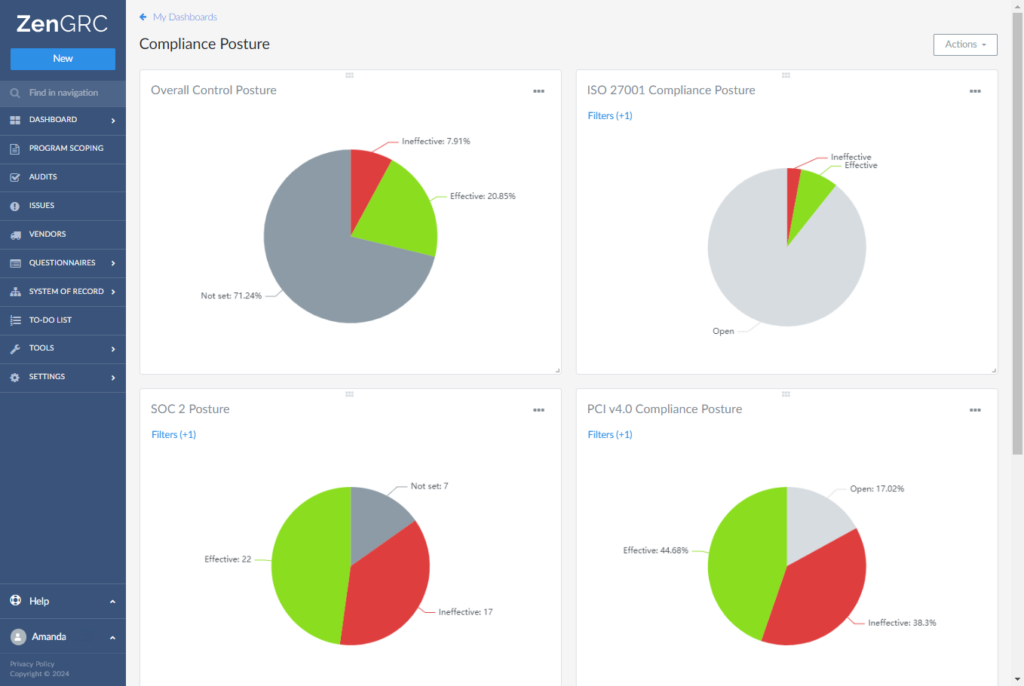GDPR Compliance
Software & Management

GDPR: Protecting EU Data
The European Union’s General Data Protection Regulation (GDPR) is a comprehensive data privacy law that mandates how organizations collect, process, and store personal information of EU residents. This regulation extends to any business that handles EU citizens’ data, regardless of location.
Non-compliance with GDPR carries severe consequences. Businesses risk hefty fines, repetitional damage, and potential loss of customers. With penalties reaching millions of euros, adhering to GDPR is crucial for long-term business sustainability.
For example, in 2017, LinkedIn suffered a data breach that resulted in compromised sensitive information for 165 million users. The breach cost LinkedIn more than £3 million, or approximately $4.15 million dollars.
Why is GDPR Compliance Crucial?
GDPR’s stringent requirements force organizations to prioritize data protection. By implementing robust security measures and transparent data handling practices, businesses can safeguard sensitive information, build trust with customers, and mitigate the risk of costly data breaches.
By adhering to GDPR principles, businesses not only avoid hefty fines but also foster trust with customers. Implementing robust security measures, ensuring data privacy, and demonstrating transparency are fundamental to long-term success. GDPR compliance is more than just a regulatory obligation; it’s a strategic imperative for businesses operating in the global marketplace.
GDPR Requirements at a Glance
While the EU has not been updated since its release in 2018, on Jan. 31, 2020, the UK implemented its own version of the standard, UK-GDPR (the United Kingdom General Data Protection Regulation) after Brexit.
For businesses with customers in the EU, GDPR compliance requirements encompass the following criteria:

Data processing, to ensure the privacy of data owners

Data processing, to ensure the privacy of data owners

Responding to breaches and theft in a timely and effective manner

Data protection, or safeguarding data against breaches and unauthorized use (risk)
GDPR Compliance Made Easy with ZenGRC
Pre-Built Templates, Automated Audits, and Real-Time Monitoring to Ensure Compliance with GDPR
Our ZenGRC team can walk you through the GDPR requirements, helping you examine your environment, data, and policies and ensure that the proper risk management controls are in place to protect your GDPR data.
We can also advise on documentation best practices and provide a readiness assessment template that you can use to assure compliance and verify an appropriate audit trail in the event of an official compliance review.
Using our flexible solutions can also enable you to more efficiently organize and manage GDPR requirements, as it automates many of the tedious manual processes that otherwise monopolize your time and frees up resources required to manage.
ZenGRC GDPR Capabilities
Our fully integrated and automated SaaS risk and compliance management platform equips you with a strong foundation for GDPR compliance. Our platform capabilities include:
- Automation to streamline compliance workflows and data flows
- Monitoring of the entire compliance lifecycle
- User-friendly dashboard with real-time metrics on prioritized GDPR audit tasks or required documentation
- Pre-built evidence request templates to help you prepare for auditing
- A central repository to organize all your documentation
- Control mapping to fulfill multiple requirements, whether they be for GDPR, PCI DSS or CCPA, with a single control
- Tracking of outstanding GDPR tasks
- Complete Risk Management functionality for assessments, scoring, and treatment throughout the risk lifecycle

FAQs for GDPR Compliance
Who is subject to GDPR compliance? Is GDPR compliance a legal requirement?
The GDPR is a legal requirement for any organization that markets to or services customers who reside in the European Union or the United Kingdom.
What does GDPR mean for individuals versus organizations?
The GDPR sets forth certain privacy rights for EU and UK citizens, such as the right to be forgotten and the right to obtain your user consent before sharing your data with a third party. For organizations, the GDPR is a legal framework that covers data governance, data privacy and data management for any organization with customers in the U.K. or EU, regardless of where the company itself is located.
What is the maximum fine for GDPR non-compliance?
On the higher end, a larger violation can result in fines up to $21.16 million (€20 million) or 4 percent of a company’s annual global revenue, whichever is greater.
What are the seven principles of GDPR?
To guide the enforcement of GDPR, the standard sets forth seven principles. They are:
- Lawfulness, fairness and transparency
- Purpose limitation
- Data minimization
- Accuracy
- Storage limitation
- Integrity and confidentiality
- Accountability
Is JIRA GDPR compliant?
Both JIRA Software and JIRA Service Management Cloud editions are GDPR-compliant, according to the Atlassian Cloud Roadmap.
Is G Suite GDPR compliant?
Yes, G Suite is GDPR compliant — but not out of the box. To achieve GDPR compliance in G Suite, customers must sign the Data Processing Amendment and model contract clauses when purchasing a G Suite professional license.
Is Amazon Web Services GDPR compliant?
According to its GDPR services readiness announcement, AWS states that its services can be used in compliance with GDPR privacy regulations.
